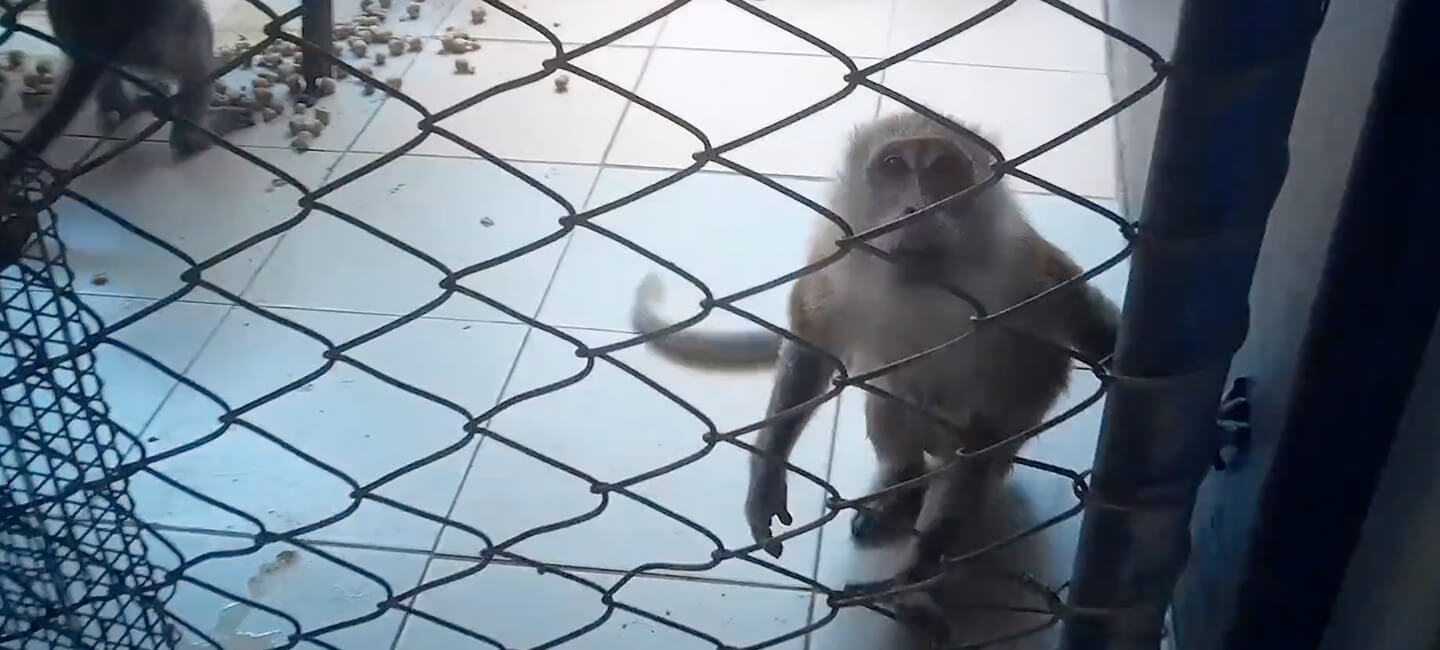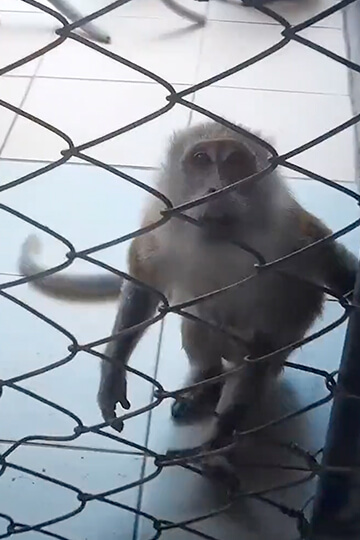

CNRS project: a national primatology center to "produce" half of the macaques destined for French laboratories
Already this summer, One Voice revealed that the current Rousset primatology station would be transformed into a national primatology center at taxpayers’ expense, to the tune of 30 million euros. The center is now looking for a director with proven project management experience to ensure its success. The aim is to “produce 40% of French academic research needs in cynomolgus macaques”.
To combat this project, which is totally at odds with the European Directive that calls for a reduction in the number of animals used in experiments, One Voice has set up a working group made up of various experts, including primatologists and veterinarians.
After having spent 10 million euros to import 500 Mauritian female monkeys for the CNRS, the French government is doing it again with the creation of this national-scale experimentation laboratory.
The emerging project seems to have a sad fate in store for the monkeys of the national primatology center.
In order to learn more about the fate that awaits them, One Voice has taken the lead and is requesting all documents concerning the monkeys, to ensure greater transparency on this project.
CNRS guarantees French leadership in primate experimentation
If there’s one area in which France excels, it’s animal testing. Since 2020, our country has used more than half of all monkeys registered in Europe for testing. Although three quarters of French people remain firmly opposed to animal experimentation, the CNRS is delighted to be able to eventually breed 40% of the crab-eating macaques used for testing in France.
This means almost tripling its monkey capacity, from the current 600 to 1,740. And let’s not forget that, once the procedures have been completed, the animals are generally slaughtered, making way for new sufferers.
Crab-eating macaques, an endangered species
These little monkeys are the sad favorites of the pharmaceutical industry. They even have the right to the little name of “cynomolgus macaques” in this field.
However, they have been classified as an “endangered” species on the International Union for Conservation of Nature’s (IUCN) Red List of Threatened Species since 2022. Despite alarming signals, they continue to be the most widely used primate species for testing. Rather than changing its practices and becoming a leader in alternatives to animal testing, France is maintaining its course of action.
The Covid-19 epidemic has unfortunately put the spotlight on these monkeys, which have fallen prey to the biomedical industry. If nothing is done, their population could be halved within the next forty years.
We must continue to stand up for the victims of these painful procedures!
As we await a transparent response to the projects in question, we’re counting on you to help us put an end to these cruel and outdated practices. Keep writing to the authorities, calling on the Minister and the CNRS!
And join us in calling for an end to the use of macaques in laboratories by signing our petition.
Download the letter to the Minister of Higher Education and Research.